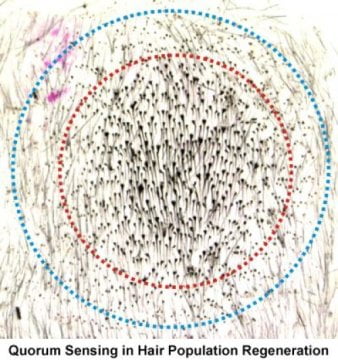THE NSW Government is facing more questions as to why Sydney’s casino has been exempted from the city’s controversial lockout laws after new data emerged showing a “statistically significant” rise in assaults in the area surrounding the venue.
At an event held on Monday night at the University of Sydney’s Institute of Criminology, which brought together health experts and academics, Dr Don Weatherburn of the NSW Government’s Bureau of Crime Statistics and Research (BOCSAR) said while the lockouts had not resulted in an overall rise in assaults in areas admittedly outside the lockout zone, in Pyrmont — where The Star casino is located — assaults were indeed on the up.
The area is now considered one of central Sydney’s assault hot spots.
At the same event, both speakers for and against the lockouts were united in being baffled as to why The Star was excluded from the zone calling it “odd”, “unjust” and “not a good look” for the NSW Government. NSW Premier Mike Baird has already found himself being nicknamed #CasinoMike.
However, The Star casino told news.com.au that their “safety record was strong” and assaults were actually going down.
On Saturday, organisers of a rallying protesting at The Star’s exclusion from the lockout zone are expecting 10,000 people to march on the casino.

A man being taken to hospital following an incident at the Pyrmont venue. Picture: Gordon McComiskieSource:News Corp Australia
75 PER CENT DROP IN ASSAULTS
In early 2014, the Government introduced strict, and highly controversial, laws aimed at curbing late night assaults. These included 1.30am lockouts and 3am cessation of alcohol sales in licensed premises within the Sydney CBD including Kings Cross. Pyrmont was excluded from the legislation.
With 16 months’ worth of data now in, the BOCSAR research said that overall, assaults had dropped in the CBD and by 45 per cent in Kings Cross. However, the effect had been even more dramatic on weekends. Prior to 1.30am on Friday and Saturday nights, when the lockouts come into force, Kings Cross sees a 54 per cent drop in assaults or as much as a 75 per cent drop after 3am.
But in the CBD there had been no noticeable change in assaults before the lockouts kicked in at 1.30am.
“In the CBD things go as you expect with no change in assaults prior to the lockout time but a significant change [after] 1.30am,” Dr Weatherburn said.
However, the data suggested something different was occurring at the Cross.
“The fact you are getting these reductions outside the lockout time may suggest many fewer people are going to Kings Cross.”
But he pointed out assaults were dropping before the lockouts were introduced.
“Even if we admit the lockout laws are responsible, we don’t know what element generated that effect — was it the lockouts, earlier closing or the publicity? But previous research does [say] that trading hours work to change assault levels,” he said.
Professor Kate Conigrave, a physician at Sydney’s Royal Prince Alfred Hospital and a Director of the Foundation for Alcohol Research and Education said, in general, assaults dropped by 30 per cent when licensing hours were decreased but went up by 35 per cent for each extra hour of booze.
While she agreed alcohol was not wholly to blame for violence, Prof. Conigrave said there would be “questions in morality” if the legislation was wound back. “The fact remains whatever the causes, alcohol is a highly significant contributing factor and when you limit alcohol assaults go down.”

Dr Don Weatherburn, from the Bureau of Crime Statistics and Research, said after 3am on weekends assaults were down 75 per cent since the lockouts came into force.Source:News Limited
‘MATES IN HIGH PLACES’
BOSCAR data found that, overall, rates of assault in suburbs immediately next to the lockout zone, such as Surry Hills, had barely seen a change in assaults levels. The exception was Pyrmont.
While assaults had been rising anyway in the suburb, which is just to the west of the CBD, since the lockouts came into force that trend had continued. During late 2014 and 2015, the number of assaults in Pyrmont stood at around 12-14 per month. Annually, however, assaults in Pyrmont are still far below those in Kings Cross even after the lockouts.
“There is a statistically significantly upward trend but how much of that is due to the lockouts or is a pre-existing trend is hard to say,” said Dr Weatherburn.
While the suburb included areas outside of The Star, Dr Weatherburn said. “Most of the assaults, but not by any means all, in Pyrmont are concentrated in the area near the casino.”
Professor Murray Lee, an expert in criminology at Sydney Law School, said while he had his misgivings about the lockouts, excluding The Star had simply mobilised those against the regulations.
“That the casino is exempted comes across as very unfair and unjust. It also creates a perception that the Government is soft on its mates in high places.”
“If The Star was counted as a single venue it would be by far the most violent venues in NSW according to assault data. It’s not really a good look.”
Professor Conigrave said, “It does seem odd that the casino is exempted. I would go for a more widespread [zone].”
A spokesman for Reclaim the Streets, which is encouraging Sydneysiders to march on Saturday to The Star, said: “There is a groundswell of opposition to #CasinoMike and his Government’s draconian lockout laws. You can’t even call Sydney a concrete jungle anymore because jungles have life in them.
“Now it’s just a concrete slab.”

NSW Premier Mike Baird, see her giving a speech in 2015 at The Star’s ball room, is under pressure to extend the lockouts to the venue. Picture: Bradley HunterSource:News Corp Australia
SAFETY RECORD STRONG
A spokesman for NSW Premier Mike Baird said the Government had announced a review of the legislation.
“All relevant aspects of the laws, including the geographical areas to which they apply, will be examined.”
A spokesman for The Star casino, which includes The Marquee nightclub as well as bars within the gaming floors, told news.com.au, Pyrmont had seven hotel licences and there were more than 100 liquor licences in the while area, by the far the majority of which were outside the casino.
“The Star receives more than 11 million visitors per year and our safety record is strong. The number of incidents to visitors is one to 200,000 plus.”
“At The Star, we witnessed a downward trend and a decrease in the number of assaults for calendar year 2014 to end of calendar year 2015. These are figures that are agreed with the casino regulator each month.”
The 2014/15 annual report of the NSW Government’s Independent Liquor and Gaming Authority said the sheer number of people visiting the casino meant, “there may be a higher
number of reported incidents at The Star than at other licensed venues in NSW,” but, it continued, “the fact remains, that there are too many incidents.”
The report said the number of assaults fell from a peak of 10 in July 2014 to two in the month of June 2015. This would suggest that the majority of reported assaults in Pyrmont were happening away from the casino despite it being by far the largest venue.
The BOCSAR statistics “we recently looked into”, said The Star’s spokesman, showed that a number of assaults recorded against the venue had occurred away from the property and involved individuals or groups who had not attended the casino.
[SOURCE :-news]




